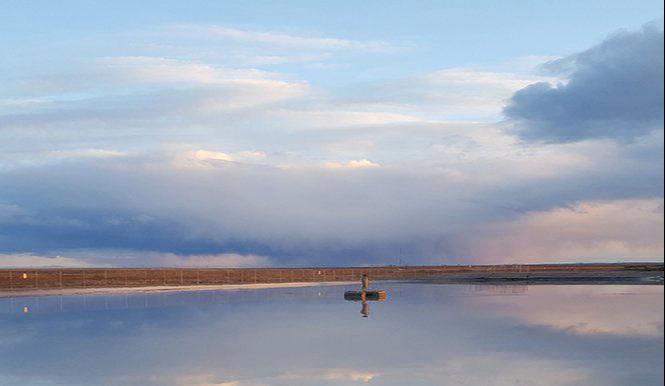
LIQUID WASTE REMEDIATION
L&R remediates received liquid waste through the most environmentally sound method available: solar distillation. Currently the L&R, Kuna, Idaho facility has seven treatment ponds with a total capacity exceeding 60-million gallons. These treatment ponds are used to evaporate the wastewater. Following evaporation, the consolidated solids are collected and treated through composting, bioremediation, or landfill.
All liquid waste is profiled before acceptance, then unloaded into one of our seven different treatment ponds. This is where the solar distillation is performed.
Wastewater
-
Fuel Contaminated Water
-
Grease Trap Waste
-
Sand Trap Waste
-
Car Wash Sumps
-
Production Water from Drilling and Manufacturing Operations
-
Wastewater from Micro Chip Production
-
Neutralized Acids
-
Saltwater
Dairy Products
-
Yogurt
-
Sour Cream
-
Ice Cream
-
Milk
-
Cottage Cheese
-
Whey Sludge
-
Cheese Desludging
Beverage Waste
-
Orange Juice
-
Soda
-
Pop Syrup
-
Brewers’ Yeast
-
Wine
-
Beer
-
Bottled water
-
Vegetable and Fruit Juice
Food Wastewater
-
Sugar Beet Wastewater
-
Potato and Onion Package Water
-
Peanut Butter
-
Molasses
-
Chocolate
-
Blanch Water
-
Bean Wash Water
-
Vegetable
Liquid waste remediation is a critical environmental process that deals with the treatment and safe disposal of liquid waste generated by various industrial, commercial, and residential activities. This type of waste can range from simple greywater from domestic use to complex and hazardous effluents produced in industrial processes, containing chemicals, heavy metals, organic and inorganic pollutants. The goal of liquid waste remediation is to minimize the environmental impact of these wastes, ensuring they do not contaminate soil, water bodies, or harm public health. Treatment methods vary depending on the waste's composition and potential risk. Techniques include physical separation, chemical treatment to neutralize harmful components, biological treatment using microbes to degrade organic pollutants, and advanced filtration systems for fine particulates and dissolved substances. In some cases, particularly with hazardous liquid wastes, more specialized treatments such as incineration or encapsulation are employed to render the waste safe.
IF YOUR WASTE IS NOT LISTED PLEASE GIVE US A CALL!
We can handle all your waste disposal needs.
